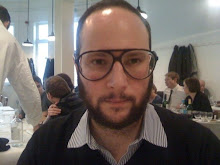
8th PANAMA BIENNIAL
The Sweet Burnt Smell of History
September 9th - October 21st 2008
8th Panama Biennial
Museum of Contemporary Art – Panamá
http://www.bienalpanama.org
Francis Alÿs, Abner Benaim, Enrique Castro Ríos, Donna Conlon, Sam Durant, Aurélien Froment, Mario García Torres, Jonathan Harker, Joachim Koester, Jonathan Monk, Roman Ondak, Rich Potter, Sean Snyder, Michael Stevenson, Mungo Thomson, Humberto Vélez and Ramón Zafrani
Curated by Magali Arriola
When entering the territories of the former North American Canal Zone in Panama, many questions arise out of the living memories and remains of place whose identity has still to be negotiated on a daily basis. What used to be known as the Canal Zone – an area that was simultaneously a military reservation, a company town and a colony that has only recently started to show the first symptoms of local re-appropriation – seems to exist today as an apocryphal memory nourished by the nostalgia of those who occupied its lands, and as a geographical ghost that embodies Panama's colonial and post-colonial history. Eight years after Panama recovered complete sovereignty over that controversial piece of land, the 8th Panama Art Biennial deals with the former American Canal Zone as a historical marker, triggering a reflection on its recent social and political history through the lenses of contemporary visual arts.
The Sweet Burnt Smell of History
As it is widely known, General Omar Torrijos famously stated, "I don't want to enter history, I want to enter the Canal Zone". However, what is usually less noted is that, after the signing of the Carter-Torrijos Treaties and the historical retrocession of the Zone to Panamanian authorities, the General refused to join the official delegation that, in 1979 for the first time, entered its territory, being certain that the country remained years away from shaking off North American colonial presence from its soil. A man of conviction who, according to Graham Greene, gave off the charisma of despair, Torrijos is said to have had a contingency plan code-named Huele a quemado ('It smells like burning') to blow up the Canal, should ratification of the 1977 treaties have failed. But, as we now know, the treaties were ratified and Panama got its Canal back.
Operating from these reverted territories, The Sweet Burnt Smell of History addresses the conditions under which the country's political history and cultural imaginary are slowly taking over this land. Simultaneously, it considers how the vanishing of its borders can resonate beyond their geographical location, exploring the cultural imaginary embodied by a divided territory that, standing as a crossroads between north and south, east and west, epitomizes the flux of global transactions. The Biennial conceptually operates within two communicating levels. Artists familiar with the Zone through previous residencies have developed in situ interventions that open up a dialogue with the past and present history of the country. Other artists, unacquainted with the place, have conceived works and interventions from abroad that operate remotely, and that will not necessarily be realized or performed in Panama. Given that Panama has often been considered a passage rather than a destination, they intend to address the modes of circulation of artistic practices and ideas under the guise of globalization.
Supporting Program
Canal Zone (1976), a documentary film by Frederic Wiseman
Museo del Canal Interoceánico, September 11th.
The Panama Canal Area: A Cultural Heritage Site of Worldwide Importance. Universidad de Panamá, José Dolores Moscote Auditorium, September 11th, 17th and 18th.
A colloquium focused on the analysis of the urban and regional design in the Panama Canal area.
Garden City: Progressive Planning and the Panama Canal
Universidad de Panamá, Sala Manuel E. Amador, September 18th- October 21st.
An exhibition produced by Kurt Dillon, Roger Trancik, and Sam Sweezy for the College of Architecture, Art, and Planning at Cornell University.
Brooke Alfaro: Recent Work, Museo de la Biodiversidad / Antiguo Club de Oficiales de Amador, opening September 11th.














No comments:
Post a Comment